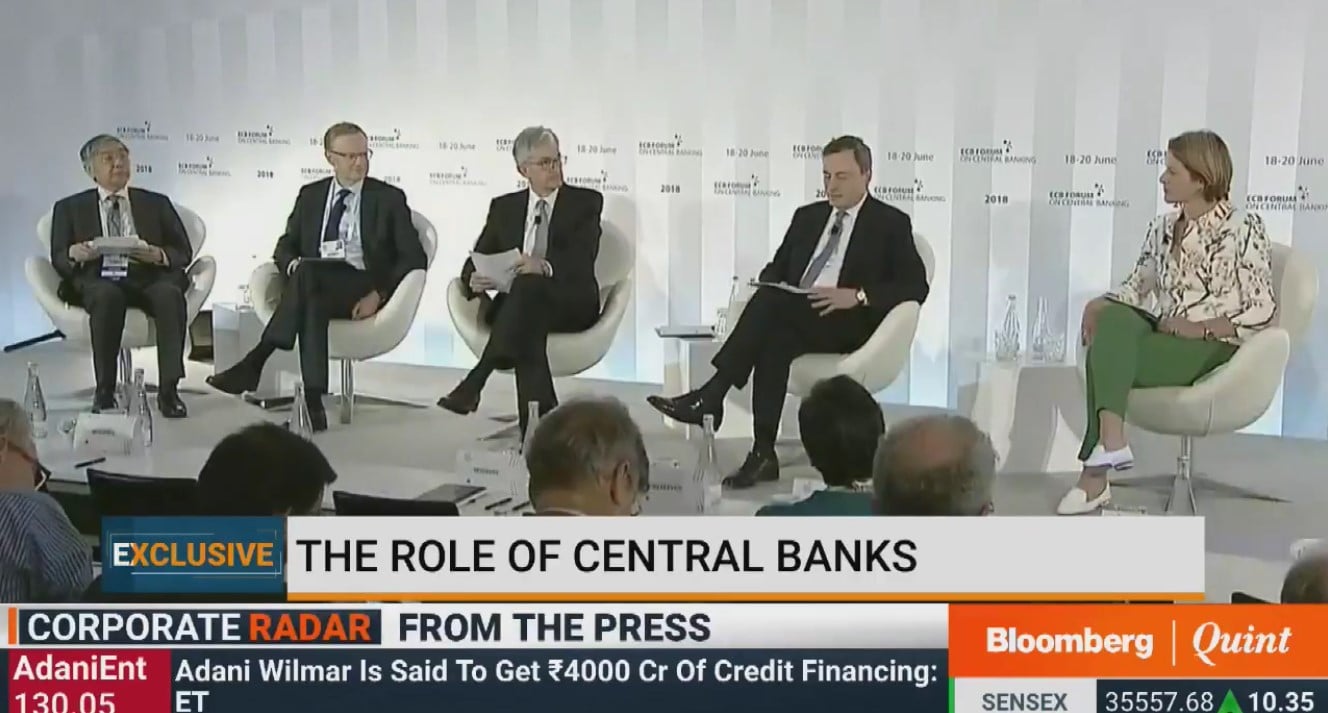What the U.S. Federal Reserve’s Jerome Powell, ECB’s Mario Draghi, Bank of Japan’s Haruhiko Kuroda and Reserve Bank of Australia’s Philip Lowe make of the trade spat and gradual rise in wages and employment.
Q1 hedge fund letters, conference, scoops etc, Also read Lear Capital: Financial Products You Should Avoid?
Central Bankers Panel: Jerome Powell, Mario Draghi, Haruhiko Kuroda & Philip Lowe
Transcript
I think it sets the bar pretty high in saying that asking us asking me at least to say something interesting but just trying to get the sense of menubar discussions today but also last year. First question is that there is clearly the first goal the first point is is that it's clearly a variety of reasons why the response of inflation and wages means souls are low and they go from measurement of this like low productivity. The trade unions have disappeared. Structural reforms labor supply is going up so increase the lot and then known wage related aspects like people wanting more stability rather than higher wages especially because their employment is of low quality. And then the importance of past inflation now to disentangle all these reasons it's very difficult but one conclusion is that we see that all these the combined effect of all these reasons is gradually washing out is gradually waning. A good example is one given by the importance of past low inflation for a long time. The ECB stuffs calculated that low inflation past low inflation has dragged about point two percent out of wage growth in the last three years period. Point two percent per year. And now we see that this effect is waning out and that has headline inflation is picking up headlining current headline inflation becomes more and more important and past low inflation is losing importance. And so that's in a sense also says that the anchoring inflation expectations was crucial and remains crucial unfortunately that will increase.
So once this is said we see that nominal wages are indeed increasing no matter which measure we take we take compensation apparently would take compensation per hour we take negotiated wages all of them are going up and they are going up around now it's one point nine percent the last datapoint for for the for the compensation per employee and Kumsusan per hour is the same by the same thing about having said that. Is this going to be translated into higher inflation. Well here I think the record is a little more mixed. For example we had we had an increase in wage growth by point eight percent between 2000 16 and 2018 and this year by the increase in inflation it was only about 1 percent. And because productivity going up by point 7. Now what do we expect for productivity. We do expect that it will grow less than it has down in the late stage of the cycles and wages not real wages will grow more than they have done in the in the in. Up to now. So all in all we see that unit labor costs are on an upward path. And by the way the other consideration which was Tochtli in the previous discussion was related to pricing power the coming back of pricing power. And there again we see encouraging signs because if we look at an index which more closely reflects input prices namely the domestic price the mystic no food price inflation in April let's go now by point five percent which is the highest rate since I think the last six seven years. So all in all this is encouraging. Now what about e-commerce. Is this going to dampen this process of recovering inflation.
And again the previous discussion about whether an increasing concentration does affect the rate of inflation to some extent gives some slight some light on on this issue. Now the answer that we have is that we find very little evidence that e-commerce has any effect on inflation. It's clearly has increased price transparency clear may have some compression of margins some cost saving. But all in all in the aggregate this doesn't show into a permanent lower inflation. So probably the effects of the e-commerce and other aspects of globalisation have to do more with the composition of industries rather than with the aggregate effect that we.






